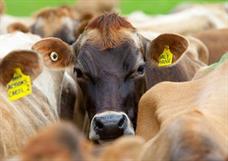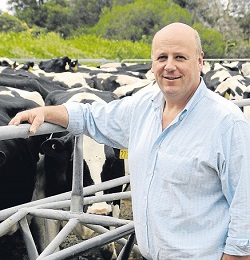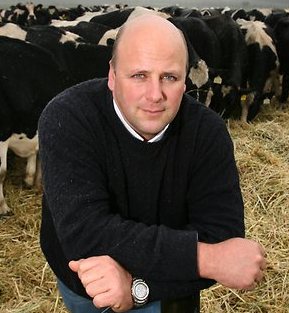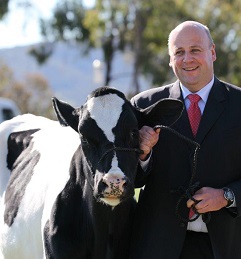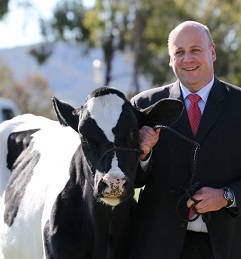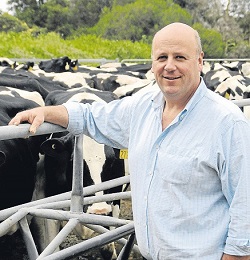Today, it was announced that there will be no change to the dairy levy.
This decision was made by the Levy Poll Advisory Committee (LPAC), whose core role is to make recommendations regarding the level of farmer levy funding
to support the long-term research, development and extension strategy for the dairy industry.
It is important to note, per the ‘Explanatory Statement’, issued by Authority of the Deputy Prime Minister and Minister for Agriculture and Water Resources
that the changes may provide Dairy Australia with savings of up to $1 million every five years, which could be re-directed towards research & development,
plus marketing and promotion activities for the benefit of the dairy industry, including dairy farmers.
Given the announcement of the LPAC decision, there will likely be some opposition to the recommendations. Therefore, it is important that there is a good
understanding of the process which formed the LPAC and what could happen as a result of the recommendation.
Background
During 2015, there was a levy poll review process undertaken to consider the requirement for Dairy Australia to hold a levy poll every 5 years.
That process led to a recommendation to levy payers to change the regulations and form the LPAC, which would undertake a review of levy funded activities
and make recommendations to industry on whether a levy poll to change the levy rate was required.
Levy payers voted in late 2015 to accept the proposed changes to the levy setting process. New regulations to give effect to the changes were signed by
the Deputy Prime Minister and Minister for Agriculture and Water Resources, Barnaby Joyce in late December 2016.
The LPAC was convened several times in the second half of 2016 to consider whether a levy poll should proceed in 2017 as was required under the previous
regulations. These LPAC meetings were based on draft regulations which were expected to be signed off late in 2016.
Australian Dairy Farmers and Dairy Australia, under the new regulations process, were required to provide the LPAC with a joint paper and recommendation
on what should happen with the levy rate. The joint recommendation was for no change in the levy rate.
The major piece of information available to inform farmers will be the LPAC report which gives an outline of the work it did, what information it used
in arriving at its recommendation(s), who it consulted with, its assessment of the value of the DA levy, etc.
Set up and composition of the LPAC
The six initial members of the LPAC were nominated by Australian Dairy Farmers, Dairy Australia and the Australian Dairy Products Federation. The initial
members formed a selection panel that proceeded to select up to nine milk producer levy payer representatives who applied to become members of the
Committee. All levy payers were invited to apply for one of the nine levy payer positions.
All the details around this are on the Levy Poll Advisory Committee web site – www.dairylevypolladvisorycommittee.com.au
What happens next?
As required by the new regulation requirements, the Chair of the LPAC – John Lawrenson, is required to advise Dairy Australia’s Chair and Minister Joyce,
of the decision of the Committee. This happened this week, along with the media statement issued by the LPAC.
Dairy Australia has 14 days from receipt of the decision of the LPAC to advise all levy payers of the outcome.
Any levy payers wishing to oppose the LPAC recommendation and propose an alternative option can initiate a petition.
Levy payers who are Group A members of Dairy Australia and who together represent 15 per cent of total levies paid in the previous financial year, will
have 75 days to lodge a petition with Dairy Australia, requesting a levy poll to be held and specifying their proposed levy option.
If there are one or more petitions which each represent at least 15 per cent of the total levies paid, then Dairy Australia will be required to hold an
Extraordinary General Meeting (EGM) at which Group A members of Dairy Australia will have the opportunity to vote to either proceed or not proceed
with a levy poll.
If the resolution to hold a levy poll is passed at the EGM, Dairy Australia must present the petition and the results of the vote to the LPAC within 14
business days after the resolution is passed.
The LPAC must also request Dairy Australia arrange a levy poll as soon as reasonably practicable and must set out the levy options proposed by the petition
and may set out any other levy options which LPAC proposes. LPAC has an ongoing role in the conduct of a levy poll including, but not limited to, information
to be provided to levy payers to use in determining their voting intention.
In the event of no petitions which represent 15 per cent of total levies paid within the 75-day period, the levy rate remains unchanged and there will
be no Levy Poll.
What could happen
During the last levy poll, there was a reasonable percentage of farmers who voted for a zero levy, so it is not unreasonable to expect there will be one
or more groups who will organize a petition to have a levy poll with a levy rate less than currently applies, or set to zero.
To guarantee the fair and democratic rights of all levy payers who are the Group A members of Dairy Australia, ADF believes it was important that provision
was made in the new regulations to ensure there was a process to allow different views among farmers to be considered.
Whether a petition reaches the full 15 per cent threshold to trigger a EGM of Dairy Australia Group A members will be the issue.
If there is a need for an EGM because of one or more petitions to Dairy Australia, then ADF will need to be clear about why it recommended, jointly with
Dairy Australia, that the levy rate should remain unchanged.
This will be a process ADF must manage during the leadup to a required EGM of Dairy Australia but may also need to be engaged in the debate during the
75 days in which a petition can be presented.
To read the explanatory statement of the Legislation, visit https://www.legislation.gov.au
For further information regarding the Dairy Levy Poll process review, visit
www.dairylevypollreview.com.au
John McQueen
Interim ADF Chief Executive Officer



